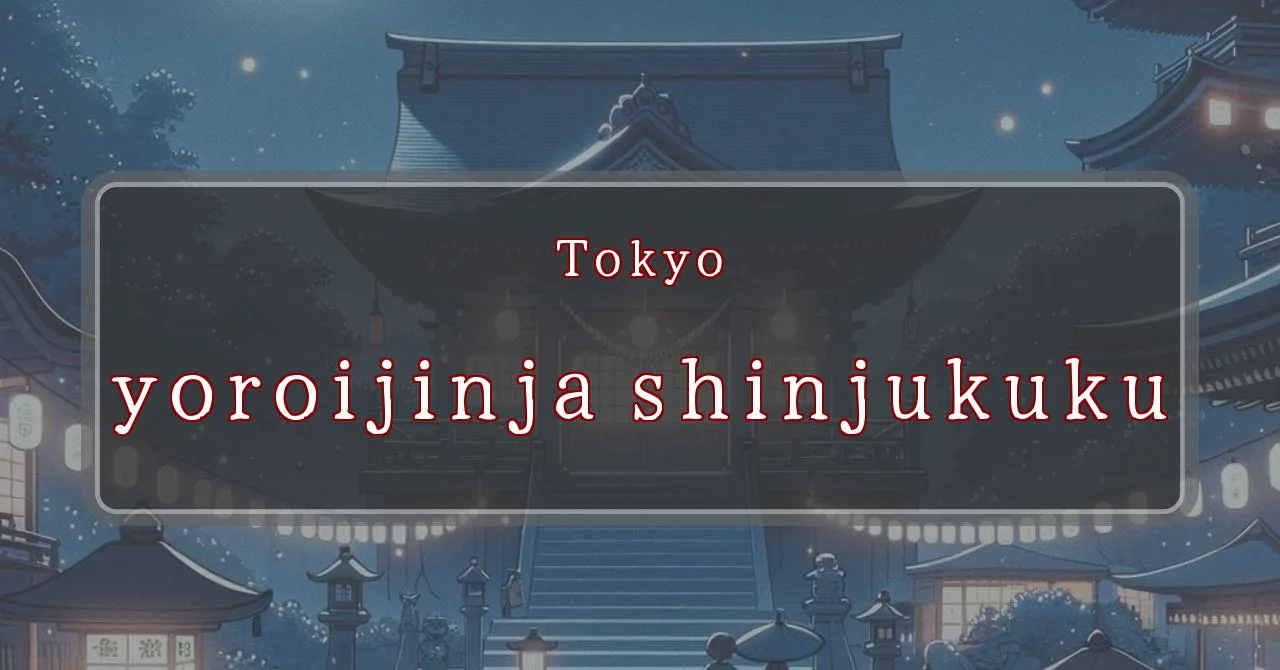Enchanting lights dance at Yoroi Shrine Festival
Basic Information
Yoroi Shrine is a Shinto shrine located in Shinjuku Ward, Tokyo, Japan. It is dedicated to the kami (spirits) of the legendary warrior Taira no Masakado, the god of war Hachiman, and the god of scholarship Sugawara no Michizane.
- Address: 3-16-18 Kita-Shinjuku, Shinjuku-ku, Tokyo 169-0074
- Phone Number: 03-3371-7324
- Access: 8-minute walk from JR Okubo Station or Higashi-Nakano Station
- Festival Days: September 15th and 16th, 2024
Main Events and Attractions of the Festival
The Yoroi Shrine Festival is a two-day festival held annually on September 15th and 16th. The festival features a variety of events and attractions, including:
Mikoshi Procession
One of the main highlights of the festival is the mikoshi procession. On the second day of the festival, a portable mikoshi shrine is carried through the streets of the neighborhood by local residents. The mikoshi is decorated with colorful tapestries and streamers, and it is accompanied by music and dancing.
Kagura Performance
Kagura is a traditional Japanese dance and music performance that is often performed at Shinto shrines. During the Yoroi Shrine Festival, kagura is performed by local children and adults. The performances are typically very lively and energetic, and they are a great way to experience Japanese culture.
Food Stalls
No Japanese festival is complete without food stalls! At the Yoroi Shrine Festival, there will be a variety of food stalls selling everything from traditional Japanese dishes to more modern fare. Be sure to try some of the local specialties, such as yakitori (grilled chicken skewers) and takoyaki (octopus balls).
Games and Activities
There will also be a variety of games and activities for children and adults to enjoy at the festival. These include traditional Japanese games like ring toss and goldfish scooping, as well as more modern games like face painting and balloon animals.
Blessings and Deities
Yoroi Shrine is dedicated to the kami (spirits) of the legendary warrior Taira no Masakado, the god of war Hachiman, and the god of scholarship Sugawara no Michizane. Masakado is said to have hidden his armor on the grounds of the shrine, which is how the shrine got its name (鎧, “yoroi,” means “armor” in Japanese). Hachiman is a powerful kami who is often worshipped for victory in battle and success in business. Sugawara no Michizane is the patron deity of scholars and students.
- Taira no Masakado: Legendary warrior and founder of the Taira clan
- Hachiman: God of war and patron deity of samurai
- Sugawara no Michizane: God of scholarship and patron deity of students
Origin and History
The origins of Yoroi Shrine are unclear, but it is believed to have been founded in the Heian period (794-1185). The shrine was originally located in a different part of Shinjuku Ward, but it was moved to its current location in 1690. The shrine was destroyed by fire in 1945, but it was rebuilt in 1954.
- Heian period (794-1185): Yoroi Shrine is believed to have been founded during this time.
- 1690: The shrine was moved to its current location.
- 1945: The shrine was destroyed by fire.
- 1954: The shrine was rebuilt.
Tips and Notes for Visitors
Here are some tips and notes for visitors to Yoroi Shrine:
- Festival: The Yoroi Shrine Festival is held annually on September 15th and 16th. The festival features a variety of events and attractions, including a mikoshi procession, kagura performance, food stalls, and games.
- Access: Yoroi Shrine is located a 8-minute walk from JR Okubo Station or Higashi-Nakano Station.
- Hours: The shrine is open from 9:00 AM to 5:00 PM.
- Admission: Admission to the shrine is free.
- Photography: Photography is permitted on the shrine grounds.
Parking Information
There is no parking lot at Yoroi Shrine. However, there are several coin-operated parking lots in the area.
- Coin-operated parking lot: 3-14-1 Kita-Shinjuku, Shinjuku-ku, Tokyo 169-0074
- Coin-operated parking lot: 3-17-1 Kita-Shinjuku, Shinjuku-ku, Tokyo 169-0074
- Coin-operated parking lot: 3-18-1 Kita-Shinjuku, Shinjuku-ku, Tokyo 169-0074
Popular Stalls and Food Carts in Recent Years
| Type of Stall | Description |
|---|---|
| Takoyaki | A staple at Japanese festivals. Characterized by a crispy outside and a creamy inside. |
| Jaga Butter | A simple yet popular snack of hot potatoes lavishly topped with melted butter. |
| Baby Castella | Small castella cakes, sweet and fluffy treats enjoyed by children and adults alike. |
| Grilled Ayu with Salt | Fresh ayu fish grilled whole with salt, a savory taste of Japanese summer. |
| Shaapin | A unique gourmet item influenced by foreign cuisine, with a chewy skin wrapping the filling. |
| Okonomiyaki | A Japanese grilled dish where you often choose your own ingredients for a personalized flavor. |
| Cotton Candy | A fluffy, sweet snack that’s extremely popular with children. |
| Chocolate Banana | A banana coated in chocolate, a fun and visually appealing dessert. |
| Kushiyaki | Various types of ingredients skewered and grilled, an easy-to-enjoy snack. |
| Yakisoba | Fried noodles mixed with a special sauce, a fast food favorite in Japan. |



